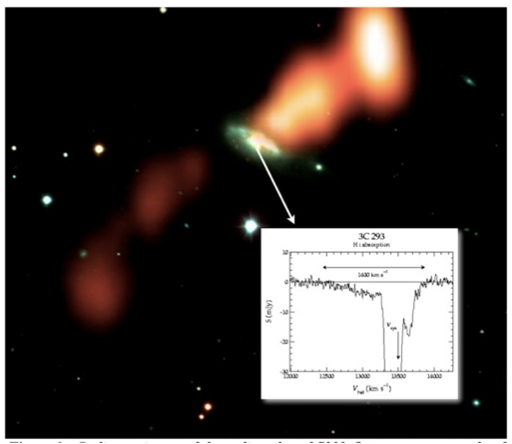Europese miljoenensubsidie voor sterrenkundige Raffaella Morganti

De Europese onderzoeksorganisatie ERC (European Research Council) heeft een Advanced Grant toegekend aan prof.dr. Raffaella Morganti, hoofd van de Astronomengroep bij ASTRON en bijzonder hoogleraar Structuur en Evolutie van Radiomelkwegstelsels aan het Kapteyn Instituut van de Rijksuniversiteit Groningen. Morganti krijgt een bedrag van circa 2,5 miljoen euro voor haar onderzoeksproject ‘Exploiting new radio telescopes to understand the role of AGN in galaxy evolution'. Met deze subsidie kan zij PhD-studenten, postdocs en een software-ingenieur aannemen voor een periode van vijf jaar.
Morganti gaat in haar project onderzoeken welk deel van de tijd het superzware zwarte gat, dat in het centrum van een sterrenstelsel zit, actief is in het radiogebied en de impact van deze fase op de evolutie van deze sterrenstelsels. Zij maakt hiervoor gebruik van twee revolutionaire radiotelescopen van ASTRON: LOFAR (de Low Frequency Array) en Apertif, de nieuwe radio-‘camera' in de Westerbork telescoop.
De ERC Advanced Grants worden alleen toegekend aan wetenschappers van uitzonderlijk niveau. De subsidie aan Morganti is de vijfde ERC Advanced Grant die is toegekend aan een project dat gerelateerd is aan de LOFAR-telescoop en/of aan Apertif. Dit laat zien dat er veel enthousiasme is in de wetenschappelijke gemeenschap over de mogelijkheden van deze telescopen en de onderzoekers die hierbij betrokken zijn.
Meer nieuws
-
17 februari 2026
De lange zoektocht naar nieuwe fysica
-
10 februari 2026
Waarom slechts een klein aantal planeten geschikt is voor leven
